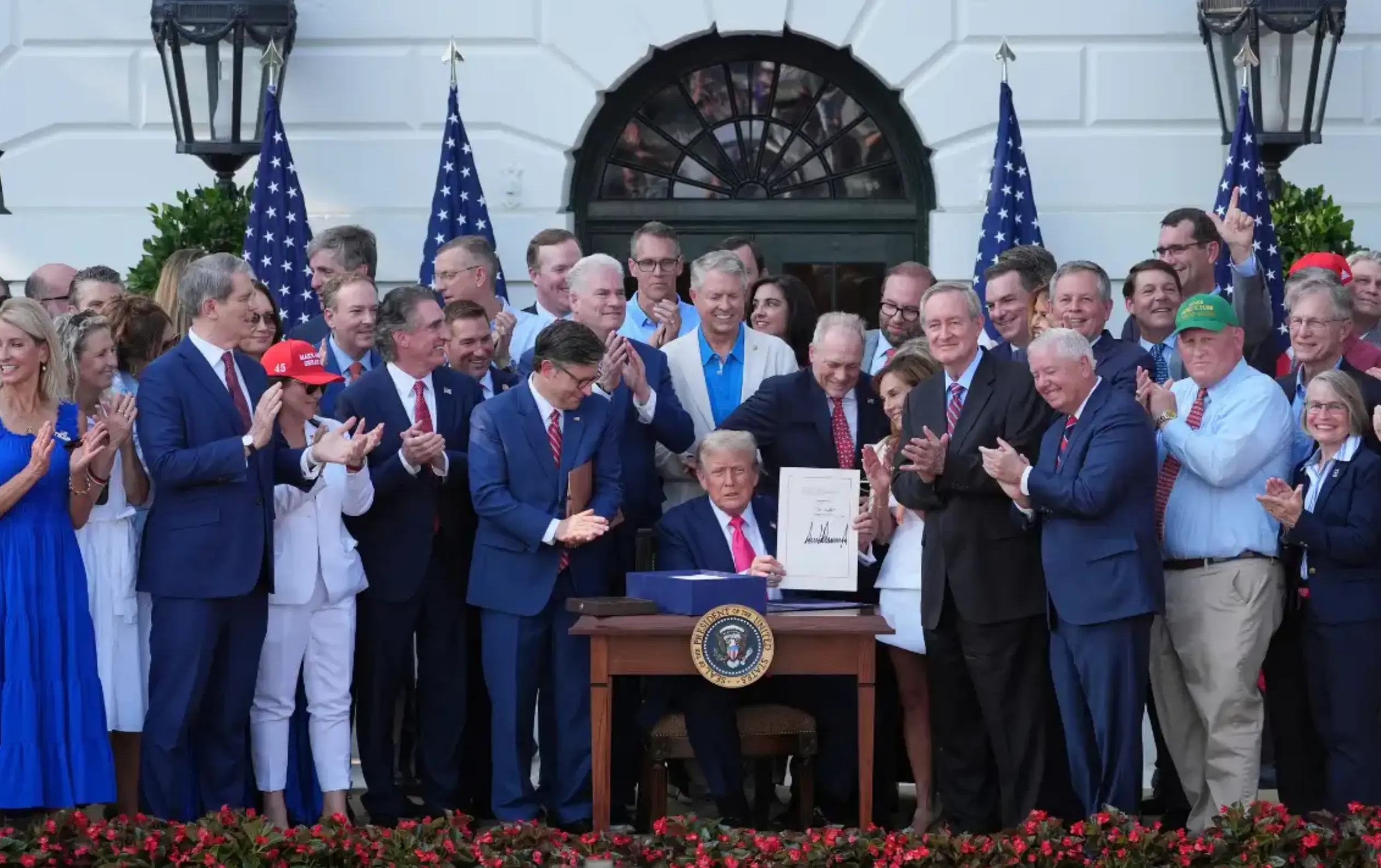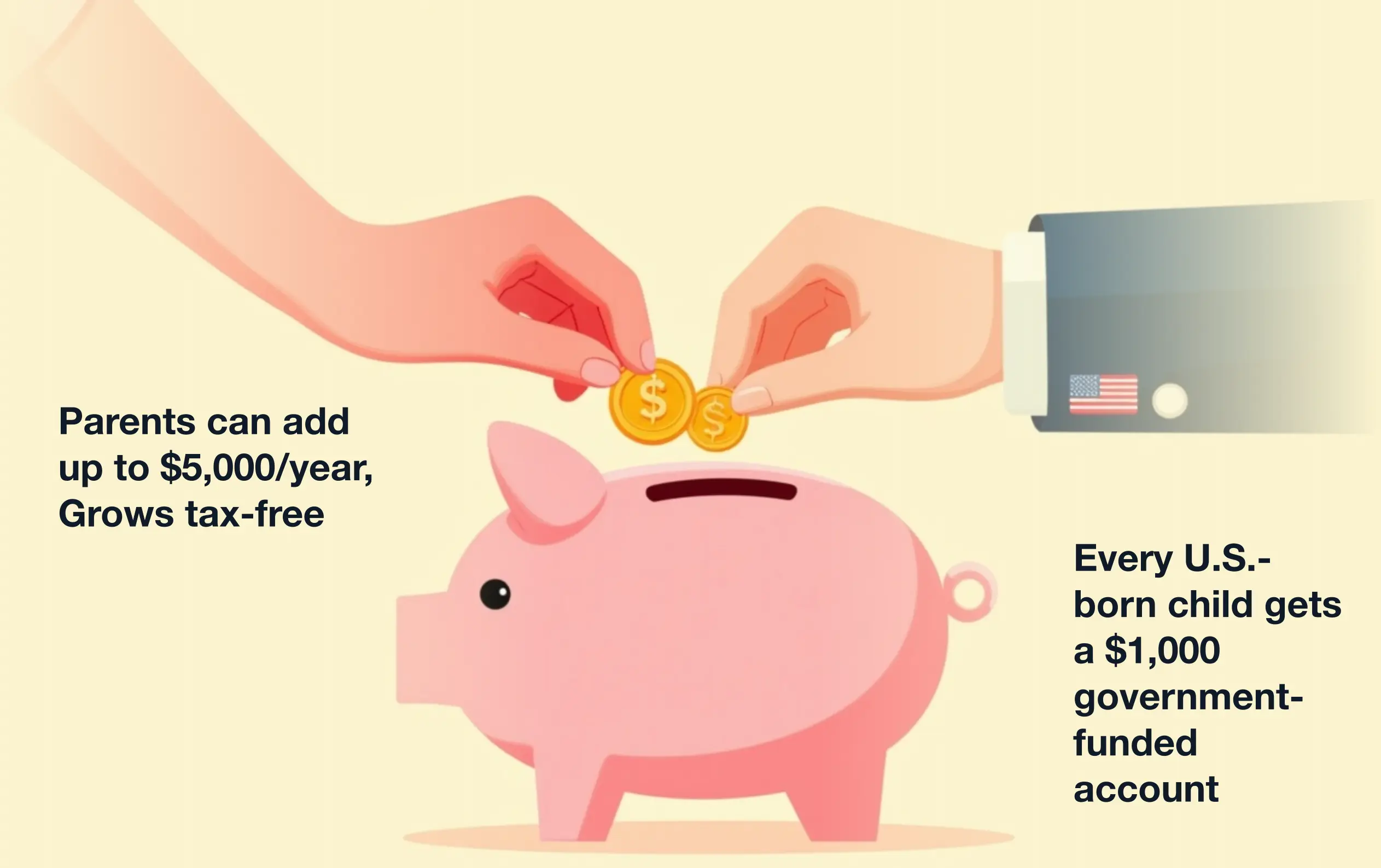
On July 4, 2025, as the nation stood united in celebration, a defining moment unfolded, the signing of the One Big Beautiful Bill Act (H.R.1) by President Donald J. Trump. Broadcast live and watched by millions, this landmark legislation wasn’t just another policy, it was positioned as a bold reset for America’s economic direction.

Hailed as one of the most transformative tax and benefits reforms in recent history, the Act brings sweeping changes that reach every corner of American life from how families save, to how workers are paid, to how businesses plan for the future. Whether you're an employer navigating payroll, an employee clocking in extra hours, or a parent planning your child’s future this bill works in your favor.
Here's a clear, detailed look at what the One Big Beautiful Bill includes, what it changes, and why it’s being called a pivotal step for working Americans and business owners alike.
So, What Changed?
Imagine you're cleaning out an old garage. It’s full of things you once needed, others you never used, and some that are just taking up space. That’s kind of what the One Big Beautiful Bill does with our tax system, it keeps what’s useful, tosses out the junk, and brings in new tools to help everyone work smarter.
The bill is packed with updates, many of them fine-tuned extensions of the 2017 Tax Cuts and Jobs Act (TCJA), along with a few fresh additions. And here’s something important: some of these changes are retroactive to January 1, 2025. That means they don’t just apply to what you earn moving forward they also apply to income you’ve already made this year. So, if you’ve worked overtime, received tips, or qualified for new deductions at any point since the beginning of 2025, you’ll still be able to benefit from the bill’s tax breaks when you file your return.
No Tax on Tips and Overtime? Yes, Really
If you’ve ever worked in hospitality or done extra shifts for some extra bucks, you know how it feels to see your hard-earned tips and overtime taxed. It's like making a sandwich and someone taking a bite before you even get to taste it.
Now? With OBBB, tips and qualified overtime pay are deductible from your federal income tax.
Let’s say you earned $10,000 in overtime and tips this year. Under the old system, that could have cost you around $2,000 in taxes. Now, under the new law, you keep more of it.
But there are rules:
• Qualified overtime: To qualify for the tax deduction, overtime must meet federal rules specifically, it must be the extra pay you earn for working more than 40 hours in a week, as required by the Fair Labor Standards Act (FLSA). If your state or employer offers extra-generous overtime (like double pay or overtime after 8 hours in a day), that portion may not qualify for the deduction.
• Also, only the extra pay counts. For example, if you’re paid $15/hour and $20/hour for overtime, only that extra $5/hour is deductible.
• Qualified tips? They have to be voluntary, customer-given, and in cash or charged. No mandatory service charges are allowed. And your job needs to be in a tipping profession as of December 31, 2024. (The IRS will be publishing a list of qualifying roles soon.)
These deductions are capped:
• For overtime, you can deduct up to $12,500.
• For tips, you can deduct up to $25,000.
Even if you earn more than that, only those amounts can be deducted.
If you earn over $150,000 (or $300,000 as a couple), the amount you can deduct for tips and overtime starts to shrink. The higher your income goes, the less you can deduct, until it may no longer apply.
Tax Brackets & Standard Deduction: Locked in and Upgraded
Remember how the TCJA lowered tax rates back in 2018? Those were supposed to expire by the end of 2025. OBBB makes them permanent.
So, if you are worried that your taxes will spike next year, you can breathe easily now. The lower tax brackets are here to stay.
And for those of us who don’t itemize deductions, here’s a bonus: the standard deduction is going up again for the 2025 tax year and will continue to adjust with inflation in future years. If you’re 65 or older, you get a special $6,000 deduction every year until 2028.
That’s like giving older Americans a coupon just for being seasoned and wise.
State and Local Tax Deduction: From Sprinkle to Pour
The SALT deduction is what you can subtract from your federal taxes for the state and local taxes you’ve already paid.
Before, the most you could deduct was $10,000, even if you paid more. Now, under OBBB:
• The cap increases to $40,000 starting in 2025.
• It will adjust for inflation each year until 2029.
• In 2030, it goes back to $10,000.
But if you earn more than $500,000, your deduction starts getting smaller though it won’t ever go below $10,000
Trump Accounts: A Head Start for the Next Generation
Here’s something new and it’s got Trump’s name on it.
Trump Accounts, a special type of savings account, just for children under 18. Parents, family members, businesses, or even nonprofits can put in up to $5,000 a year (after taxes). There’s no limit for contributions from nonprofits or government programs.
Money can only be added until the child turns 18, and they can start taking it out once they reach 18. It’s designed to help kids start adulthood with some financial support already in place like a savings box that grows quietly in the background until they’re ready to use it.
And here’s the extra boost: for every baby born between December 31, 2024, and January 1, 2029, the government will make a one-time deposit of $1,000 into their Trump Account. It’s like every newborn getting a head start, a financial welcome gift to build on.

For Employers: What You Really Need to Know
If you manage payroll, HR, or run a business, several updates are heading your way.
Payroll and Tax Reporting
With the One Big Beautiful Bill now in effect, employers need to be ready for several changes in how payroll and taxes are handled. This includes:
• New deductions for employee tips and overtime,
• Adjustments due to the retroactive application starting from January 1, 2025, and
• A transition rule allowing the use of “any reasonable method” to estimate qualifying amounts.
The Treasury Department will be releasing detailed guidance soon but staying compliant and accurate from the start is key.
That’s where we come in. Our tax preparation outsourcing services are here to help you navigate these changes smoothly, ensure your records align with the new rules, and avoid costly errors.
Childcare Credit: More Support, Bigger Reward
Businesses that provide childcare to employees used to get a $150,000 tax credit (covering up to 25% of expenses). Now?
• The credit goes up to $500,000.
• The percentage of expenses covered increases from 25% to 40%.
• Small businesses (under $31M in receipts) get a maximum of $600,000 credit at a 50% rate.
Even better, small businesses can pool their resources to offer childcare together. Think of it like carpooling for daycare costs.
Paid Family and Medical Leave Credit: Now Permanent
One of the most helpful tax breaks for employers just became permanent. Businesses can now continue claiming a credit for offering paid family and medical leave and it’s easier to qualify than before.
Here’s what’s changed:
• The minimum time an employee must work before being eligible has dropped from one year to just six months.
• If you’re following state or local leave laws, that leave now also counts toward the credit.
• And if you’re using paid leave insurance, those premiums are now included too.
Employers can still claim between 12.5% and 25% of the wages paid during leave, depending on how generous the benefits are. In short, it’s simpler to qualify, more flexible to use, and still a smart way to support your team.
Business Meals, Fringe Benefits & More
• Meal costs are still 50% deductible, but now that also includes meals provided on fishing boats and at fish processing facilities. So, if you're in the seafood business, good news, your lunch counts.
• The $20/month tax-free benefit for biking to work is officially gone.
• Moving expense deductions are no longer available except for active-duty military and members of the U.S. Intelligence Community.
R&D Expense Deduction: Immediate Relief for Innovators
Remember when companies had to spread out their research expenses over five years?
No more. Now, domestic research and development (R&D) costs are immediately deductible, a major win for innovation.
And if you're a small business with less than $31 million in revenue, you can even apply these changes retroactively back to 2021, speeding up recovery on past investments.
The Bottom Line
The One Big Beautiful Bill doesn’t just tinker with the tax code, it reshapes how money flows between individuals, families, and businesses. It puts more cash in working hands, lightens the load on employers, and opens the door for long-term financial planning, especially for children and retirees.
Like a well-thought-out renovation, the bill keeps the solid foundation, knocks out the walls that weren’t helping anyone, and adds new spaces for opportunity.
It’s big. It’s bold. It’s detailed. Whether you're running payroll, organizing benefits, or just working to cover your monthly bills, this bill is designed to ease the financial load and give you a little breathing space.

Shekhar Mehrotra
Founder and Chief Executive Officer
Shekhar Mehrotra, a Chartered Accountant with over 12 years of experience, has been a leader in finance, tax, and accounting. He has advised clients across sectors like infrastructure, IT, and pharmaceuticals, providing expertise in management, direct and indirect taxes, audits, and compliance. As a 360-degree virtual CFO, Shekhar has streamlined accounting processes and managed cash flow to ensure businesses remain tax and regulatory compliant.
You might also like:
- Getting Your PayPal Taxes Right: The Seller’s Guide to Reporting, Forms & Smart Record Keeping
- How the IRS Helps When a Natural Disaster Turns Your Financial Life Upside Down
- Is Social Security Really Tax-Free Under the OBBBA?
- What Happens If You File the Wrong IRS Form? Real Penalties, Delays & How to Fix It Fast
- How the One Big Beautiful Bill Act Will Change Your 2026 Tax Saving
Listen Exclusive Podcast On

